
The Enchanting Bruges Coast: Belgium's Coastal Gem
The Bruges Coast, nestled in Belgium, offers a captivating blend of history, culture, and natural beauty. Stretching along the North Sea, this region is famous for its picturesque beaches, charming seaside towns, and rich maritime heritage. The coastal area is a perfect escape for those looking to relax by the sea or delve into the local culture and history. Visitors to the Bruges Coast can enjoy long walks along the sandy shores, explore the bustling markets, or take a boat tour through the serene canals. The area is also known for its exceptional seafood, with many restaurants serving fresh catches of the day. For history enthusiasts, the coastal towns boast impressive architecture, museums, and historical sites that tell the story of Belgium's maritime past. The Bruges Coast is not just about the sea; it is also a gateway to the stunning countryside of West Flanders. Here, tourists can explore scenic bike routes, lush green fields, and quaint villages that offer a glimpse into the traditional Belgian way of life. Whether you're looking for relaxation, adventure, or cultural enrichment, the Bruges Coast has something to offer every traveler.
Local tips in Bruges Coast
- Visit during the off-peak season to enjoy quieter beaches and better accommodation rates.
- Try the local seafood specialties at the coastal town markets and restaurants for an authentic taste of the region.
- Rent a bike to explore the nearby countryside and quaint villages – it's the best way to see the area's natural beauty.
- Check the local event calendar for traditional festivals and maritime events to enrich your cultural experience.
- Pack layers, as the coastal weather can be unpredictable, even during summer months.
The Enchanting Bruges Coast: Belgium's Coastal Gem
The Bruges Coast, nestled in Belgium, offers a captivating blend of history, culture, and natural beauty. Stretching along the North Sea, this region is famous for its picturesque beaches, charming seaside towns, and rich maritime heritage. The coastal area is a perfect escape for those looking to relax by the sea or delve into the local culture and history. Visitors to the Bruges Coast can enjoy long walks along the sandy shores, explore the bustling markets, or take a boat tour through the serene canals. The area is also known for its exceptional seafood, with many restaurants serving fresh catches of the day. For history enthusiasts, the coastal towns boast impressive architecture, museums, and historical sites that tell the story of Belgium's maritime past. The Bruges Coast is not just about the sea; it is also a gateway to the stunning countryside of West Flanders. Here, tourists can explore scenic bike routes, lush green fields, and quaint villages that offer a glimpse into the traditional Belgian way of life. Whether you're looking for relaxation, adventure, or cultural enrichment, the Bruges Coast has something to offer every traveler.
When is the best time to go to Bruges Coast?
Iconic landmarks you can’t miss
Belfry of Bruges
Explore the Belfry of Bruges, a historic tower offering stunning views and a glimpse into the city's rich architectural heritage.
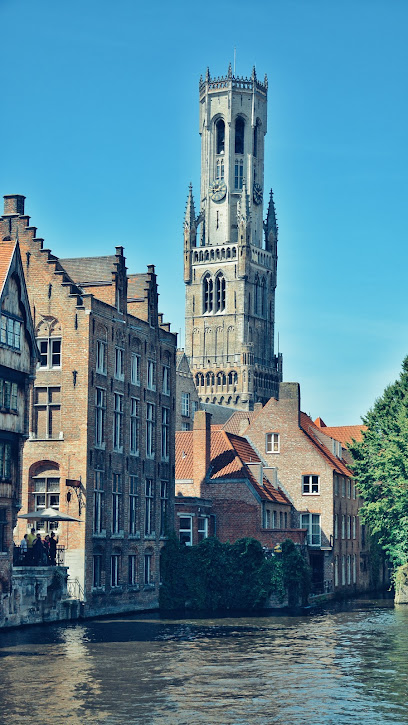
Market Square
Discover the enchanting Market Square in Bruges, a historical landmark brimming with culture, stunning architecture, and vibrant atmosphere.
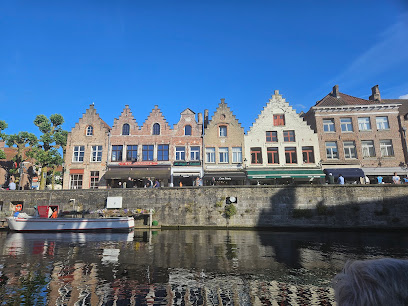
Minnewater Park
Discover the enchanting beauty of Minnewater Park in Bruges, a serene oasis perfect for relaxation and exploring nature's wonders.
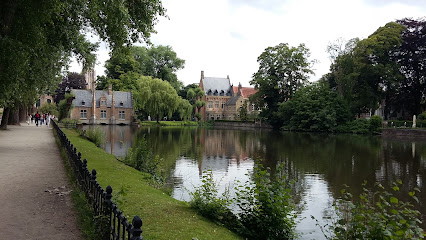
Church of Our Lady
Explore the stunning Gothic architecture of the Church of Our Lady in Bruges, home to Michelangelo's Madonna and a treasure trove of artistic heritage.
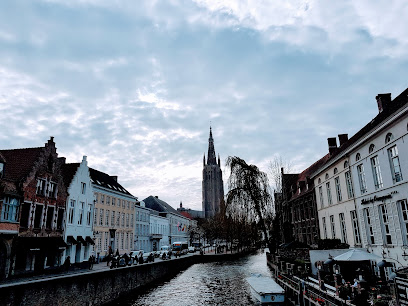
Boattour Bruges
Explore the serene canals of Bruges with Boattour Bruges, an unforgettable way to experience the city's medieval charm from a unique perspective.
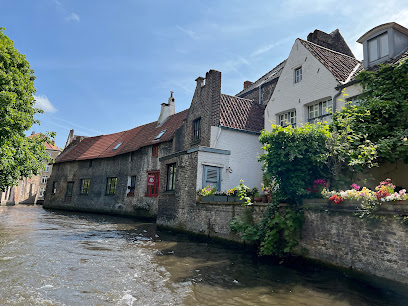
Sint-Salvatorskathedraal
Explore the stunning Sint-Salvatorskathedraal, a historical marvel showcasing Bruges' rich heritage and breathtaking architectural beauty.

Basilica of the Holy Blood
A historic basilica in Bruges with Romanesque and Gothic architecture, housing a revered relic believed to contain the blood of Jesus Christ.
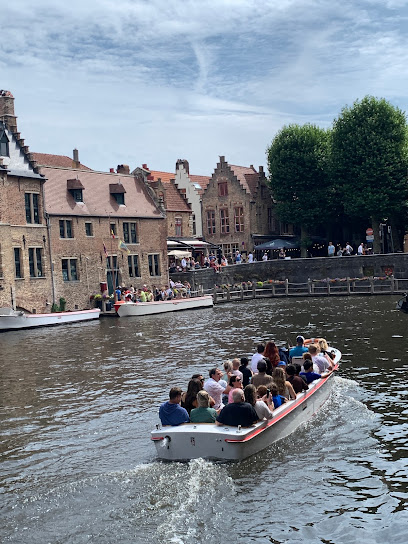
Historium Bruges
Explore the rich history of Bruges at Historium, where immersive exhibits and storytelling bring the medieval past to life in an unforgettable experience.
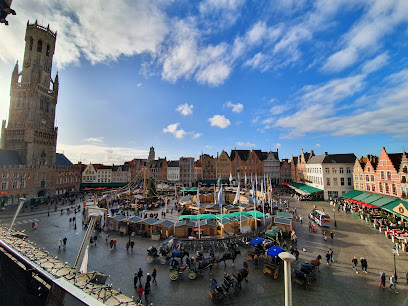
Koningin Astridpark
Explore the natural beauty and tranquility of Koningin Astridpark, a stunning park in the heart of Bruges, perfect for relaxation and leisure activities.
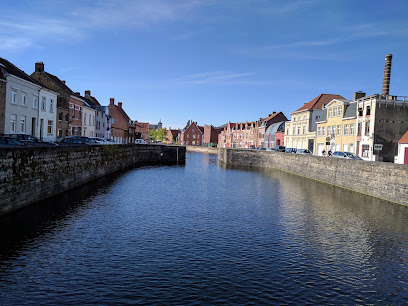
De Burg
Discover the historic De Burg in Bruges, where medieval architecture and vibrant culture come together in a captivating square.
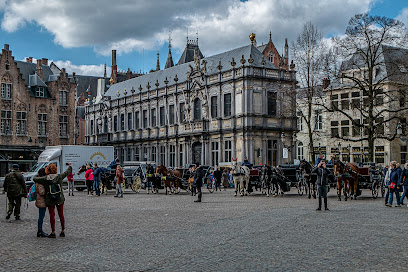
Boniface Bridge (Bonifaciusbrug)
Discover the enchanting Boniface Bridge in Bruges, a picturesque landmark connecting you to the city's rich history and stunning canals.
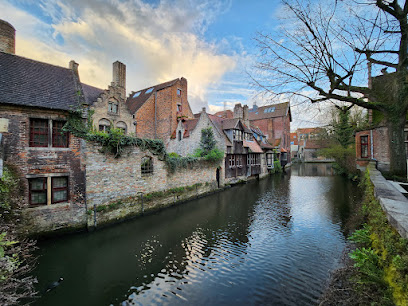
Frietmuseum
Discover the fascinating history of Belgian fries at the world's first and only Frietmuseum, located in the heart of Bruges.
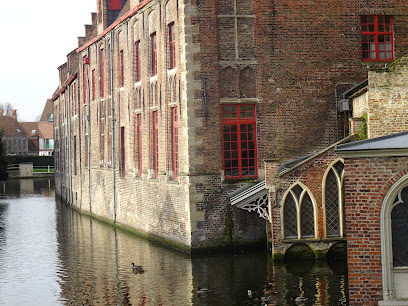
Site Oud Sint-Jan
Explore Site Oud Sint-Jan in Bruges: A historic venue blending art, culture, and events in a unique architectural setting.
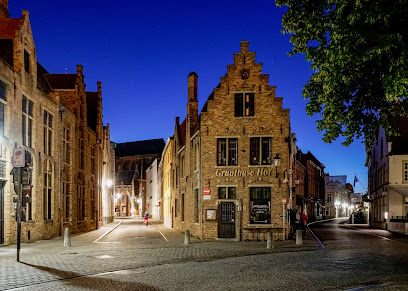
Kruispoort gate
Step back in time at Bruges' Kruispoort, a historic medieval gate offering a glimpse into the city's fortified past and architectural grandeur.
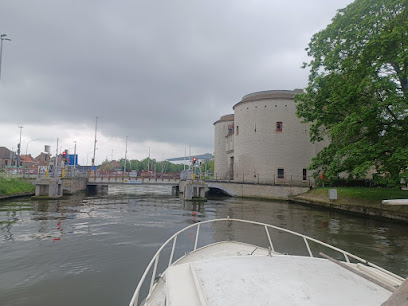
Rosary Quay
Explore the breathtaking views and rich history of Rosary Quay, Bruges—an iconic waterfront that captures the essence of Belgian charm.
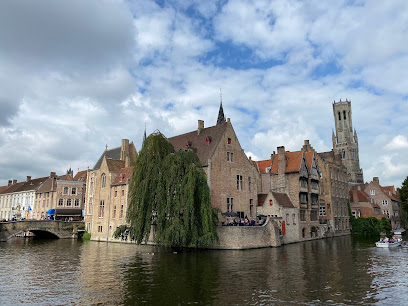
Unmissable attractions to see
Sint-Salvatorskathedraal
Explore Bruges' oldest church, Sint-Salvatorskathedraal, a captivating blend of architectural styles and artistic treasures reflecting centuries of history.
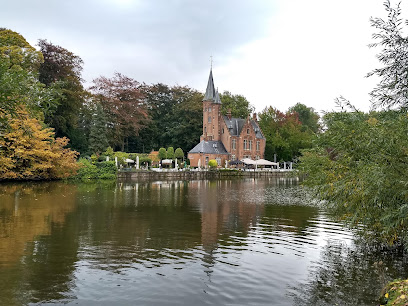
Koningin Astridpark
Discover the tranquil beauty of Koningin Astridpark, a lush urban oasis in the heart of Bruges, perfect for relaxation and leisure.
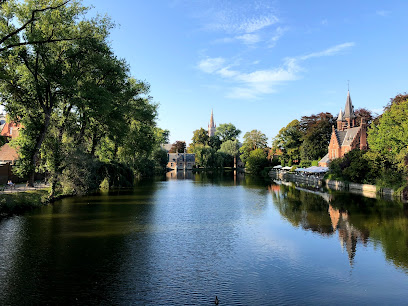
De Garre
Discover De Garre, Bruges' best kept secret: a cozy, historic bar hidden in a narrow alleyway, offering an impressive selection of Belgian beers.
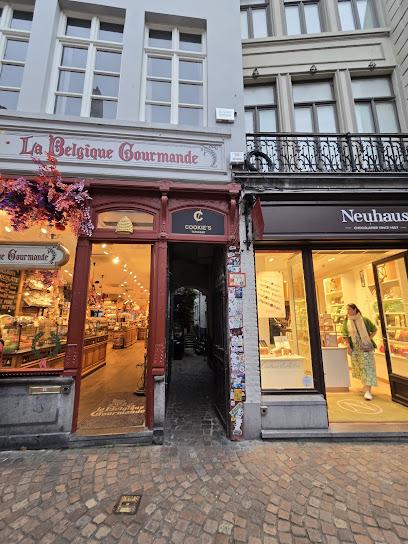
Huisje van Majutte
Experience the maritime heritage of Blankenberge at Huisje van Majutte, a delightful museum and pub offering local culture and cozy relaxation.
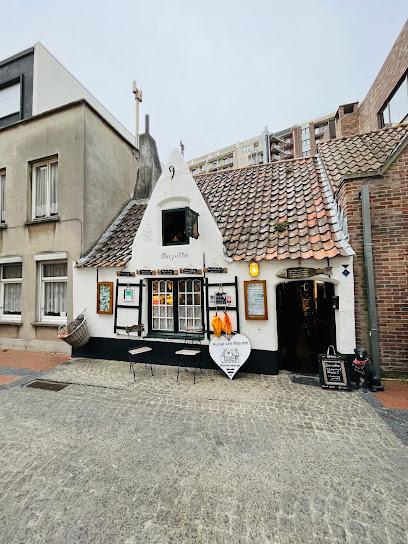
Het Arsenaal
Experience the thrill of rides and the wonder of marine life at Het Arsenaal, a top amusement park and aquarium in Vlissingen.
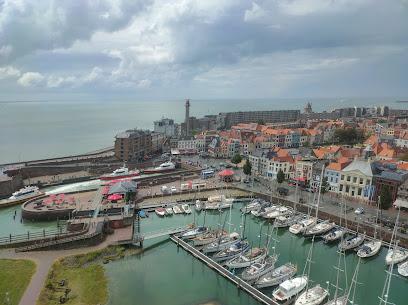
Universiteit Gent - Botanical Garden
Discover the beauty and tranquility of Universiteit Gent's Botanical Garden, a lush haven in the heart of Ghent filled with diverse plant species.
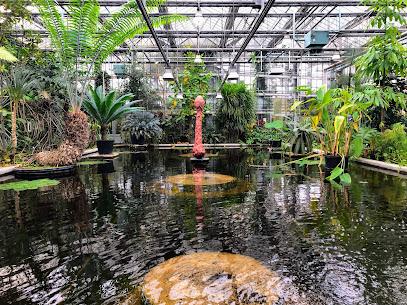
Bargeplein
Escape to Bargeplein in Bruges: a serene park with lush greenery, charming waterways, and peaceful walking paths for ultimate relaxation.
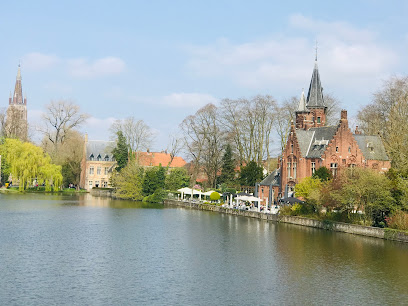
The Monk
Discover The Monk in Bruges, where sports, billiards, and good times come together in a lively atmosphere.
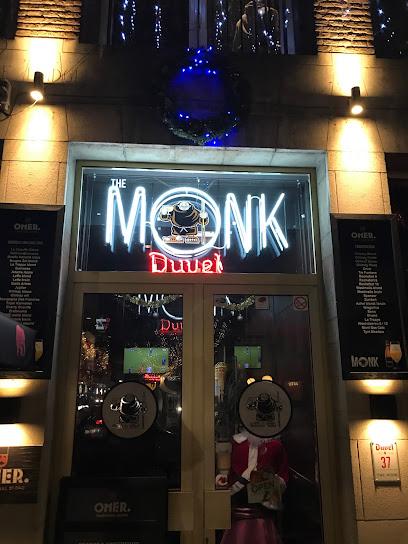
Castle Loppem
Explore Castle Loppem in Zedelgem, a captivating blend of history and nature, offering enchanting gardens and rich Belgian heritage.
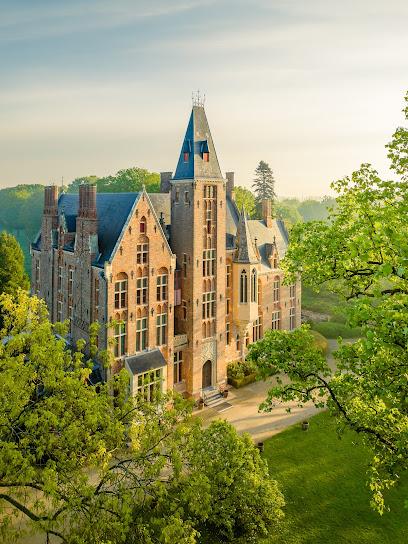
Boudewijn Seapark
Experience the thrills of Boudewijn Seapark in Bruges, featuring a water park, zoo, and fun attractions for the whole family to enjoy.
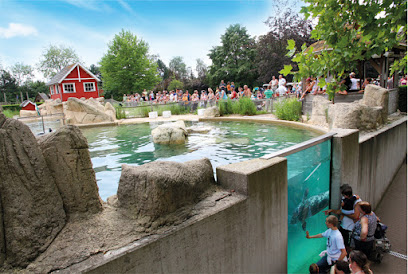
't Dreupelkot
Discover the authentic taste of jenever at 't Dreupelkot, a charming bar and restaurant in the heart of Ghent, Belgium.
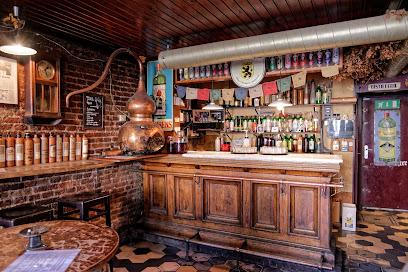
Groot Vlaenderen
Experience expertly crafted cocktails in an elegant, historic setting at Groot Vlaenderen, Bruges' premier cocktail destination.
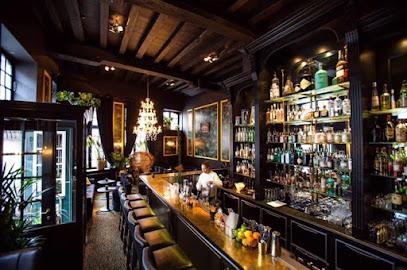
Ezelpoort
Explore Ezelpoort, the historic gateway to Bruges, where medieval charm meets vibrant culture in the heart of Belgium's UNESCO World Heritage city.
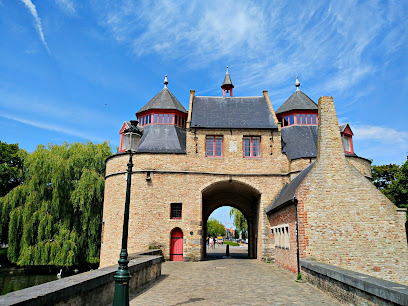
Seafront
Discover the maritime heritage of Bruges at Seafront, home to Belgium's only dive boat and engaging exhibits for all ages.
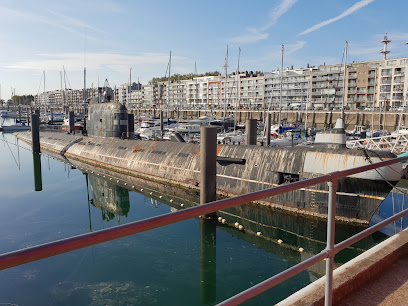
Paravang
Experience the vibrant atmosphere and stunning coastal views at Paravang, Blankenberge's must-visit tourist attraction.
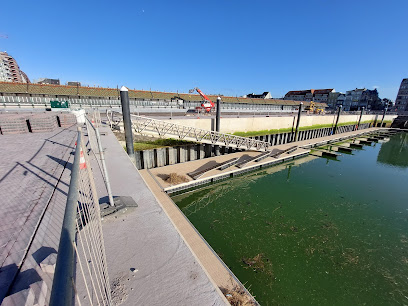
Essential places to dine
That's Toast
Discover That's Toast in Bruges - A charming brunch spot serving fresh, local flavors in a cozy atmosphere perfect for tourists.
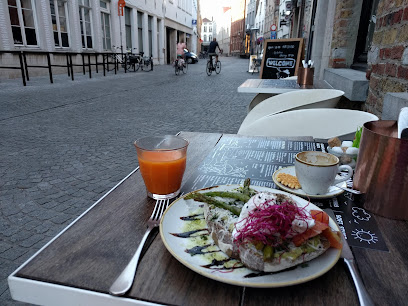
Poules Moules
Experience authentic Belgian cuisine at Poules Moules, where delightful seafood meets the charm of Bruges.
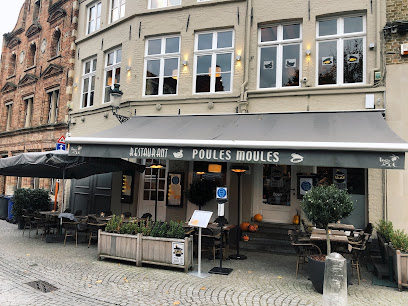
De Gastro
Experience authentic Belgian cuisine at De Gastro in Bruges, where local flavors meet exceptional hospitality.
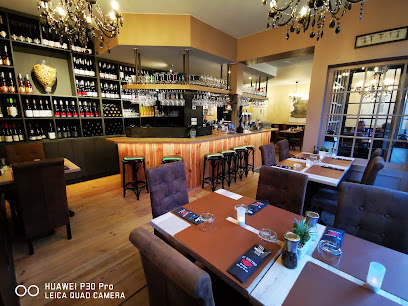
Mozart, More Than Just Ribs
Savor exquisite ribs and authentic Belgian cuisine at Mozart in Bruges - where flavor meets tradition in a delightful setting.
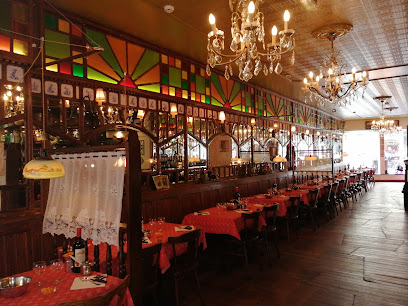
The Olive Tree Brugge
Experience authentic Greek cuisine at The Olive Tree Brugge, where Mediterranean flavors meet Belgian hospitality.
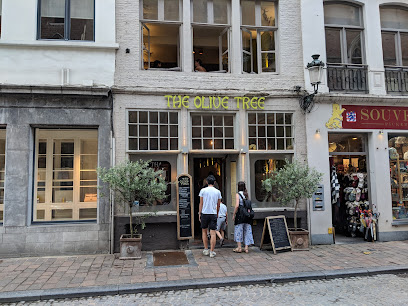
Vlaminck '14
Experience authentic Belgian cuisine at Vlaminck '14, a charming bistro in the heart of Bruges known for its warm atmosphere and delicious dishes.
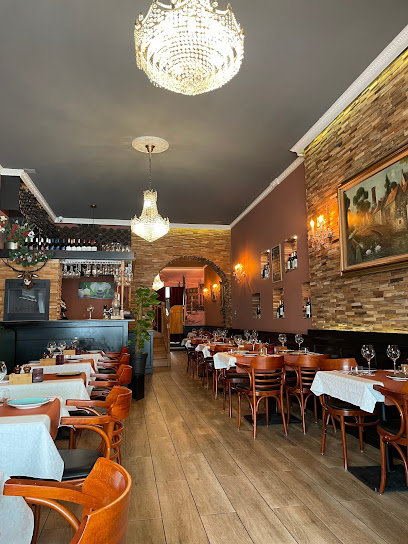
Bij Koen & Marijke - In't Nieuw Museum
Discover the exquisite flavors of Argentinian barbecue blended with Belgian cuisine at Bij Koen & Marijke - In't Nieuw Museum.
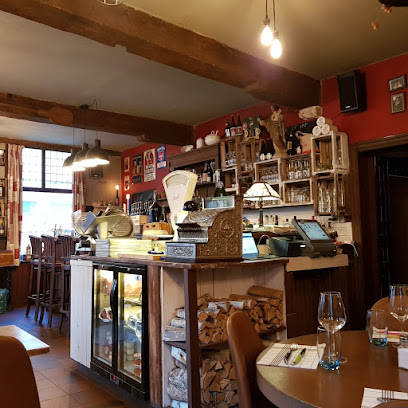
Bistro Zwart Huis
Experience authentic Belgian cuisine at Bistro Zwart Huis in Bruges – where tradition meets flavor in every dish.
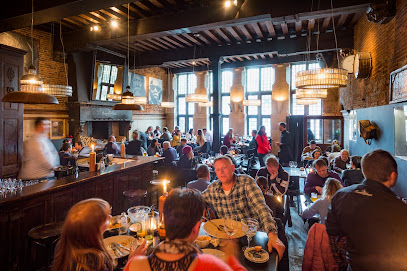
Belgian Pigeon House
Discover authentic Belgian cuisine at the renowned Belgian Pigeon House in Bruges - where tradition meets flavor.
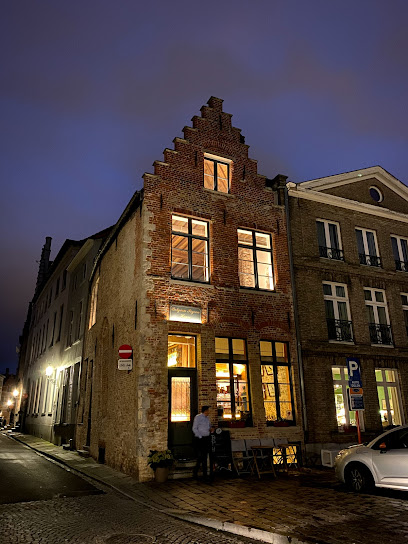
ONE Restaurant
Experience authentic Belgian flavors at ONE Restaurant in Bruges – where tradition meets culinary innovation.
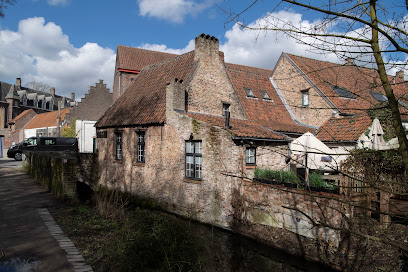
Restaurant De Wijngaert
Experience authentic Belgian cuisine at Restaurant De Wijngaert in Bruges - a delightful culinary escape amidst stunning surroundings.
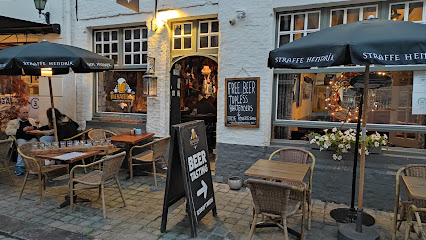
Arthie's
Discover the authentic taste of Belgium at Arthie's Bistro in Bruges—where tradition meets culinary excellence.
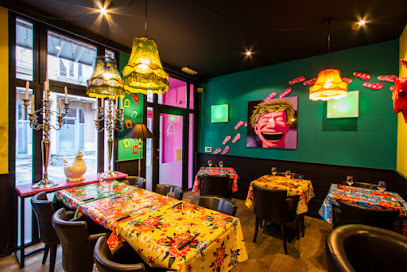
L.E.S.S Eatery
Discover exquisite Belgian cuisine at L.E.S.S Eatery in Bruges – where local flavors meet modern culinary artistry.
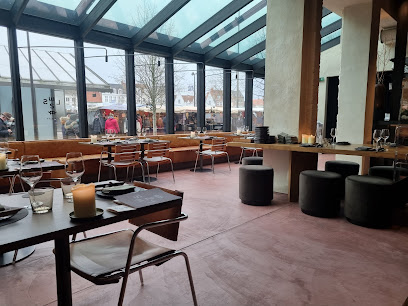
Au Gusto Wine & Dine
Experience authentic Italian cuisine at Au Gusto Wine & Dine in Bruges - where exquisite flavors meet elegant ambiance.
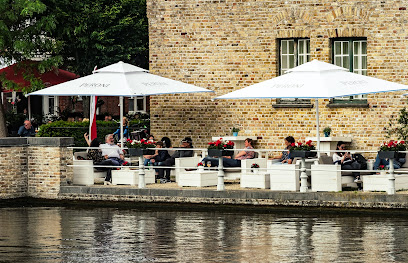
Caramel Place de Bruges
Discover the culinary delights at Caramel Place de Bruges, where local flavors meet international cuisine in a cozy atmosphere.
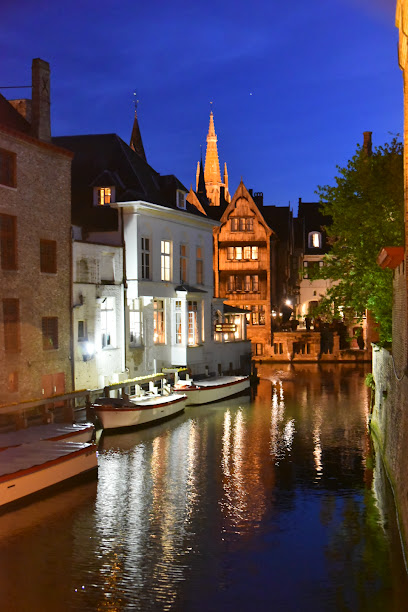
Markets, malls and hidden boutiques
B-Park
Discover B-Park in Bruges: A vibrant shopping mall with diverse stores, delicious dining, and family-friendly entertainment options.
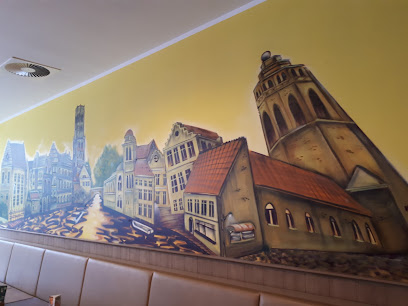
Zilverpand Bruges
Explore Zilverpand Bruges, a shopping haven blending local charm with modern retail and dining experiences in the heart of Bruges.
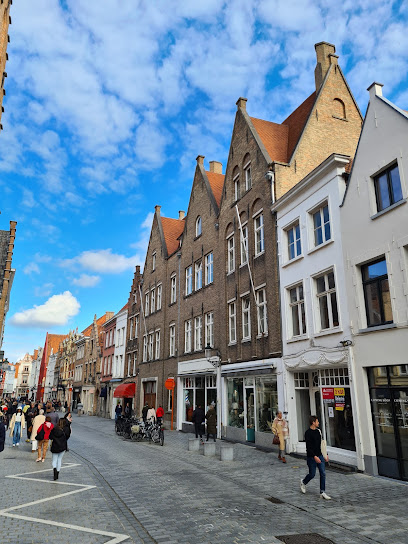
Action Brugge
Explore Action Brugge – your ultimate destination for DIY supplies, home goods, gifts, and unique treasures in the heart of Bruges.
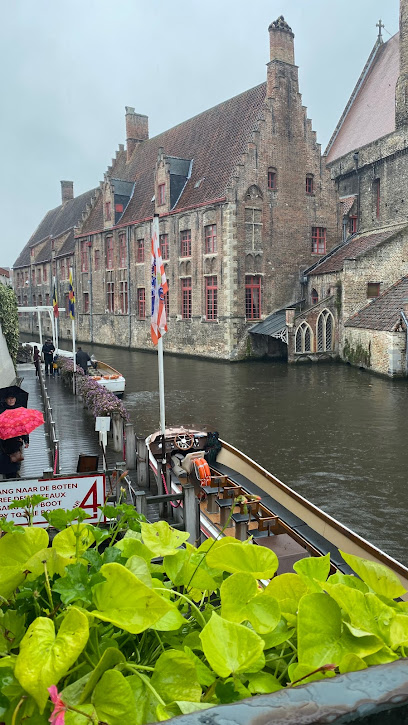
A.S.Adventure
Discover top-tier outdoor gear and clothing at A.S.Adventure in Bruges, your one-stop shop for all adventure needs.
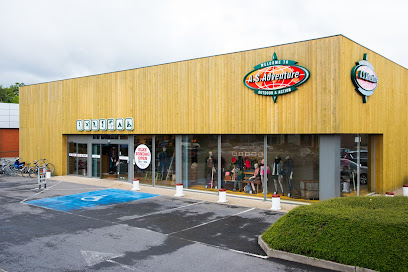
Dreamland Bruges
Explore the enchanting world of toys, books, and games at Dreamland Bruges, where imagination comes to life in a charming atmosphere.
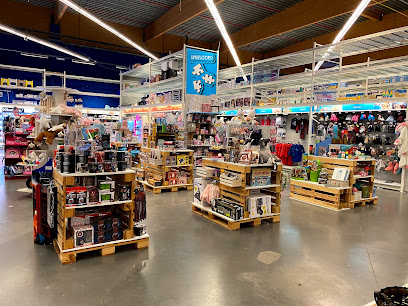
Chocolates & Happiness
Discover the sweet side of Bruges at Chocolates & Happiness, where gourmet chocolates and local souvenirs meet in a delightful shopping experience.
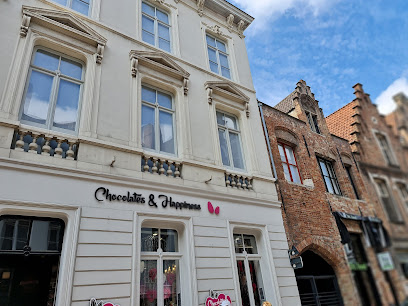
Olleke, Wizarding Shop Brugge
Discover the enchanting world of Olleke, Bruges' premier collectibles store, where magic and nostalgia meet unique treasures.
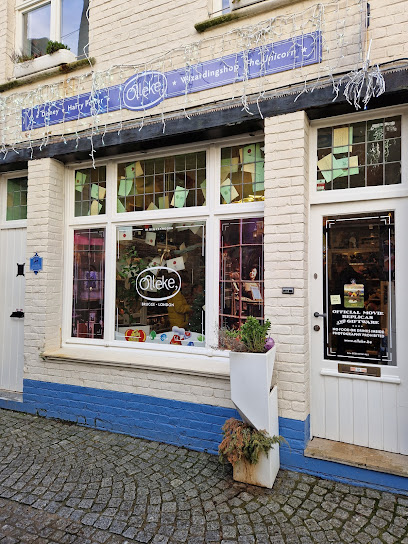
Jelly Jazz - Brugge
Explore Jelly Jazz in Bruges for unique gifts, local crafts, and memorable souvenirs that capture the essence of your Belgian adventure.
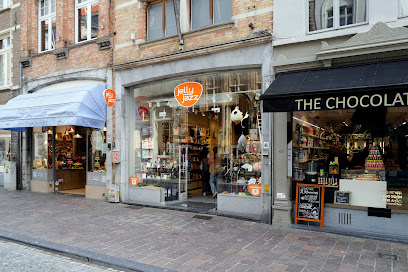
Käthe Wohlfahrt
Discover the enchanting world of Christmas at Käthe Wohlfahrt, a treasure trove of traditional German decorations and unique gifts in Bruges.
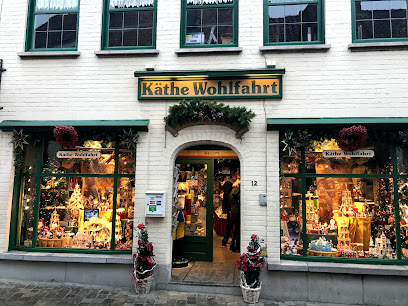
Jean de Bruges
Explore the enchanting Jean de Bruges for unique Belgian crafts, artisanal products, and a taste of local culture in the heart of Bruges.
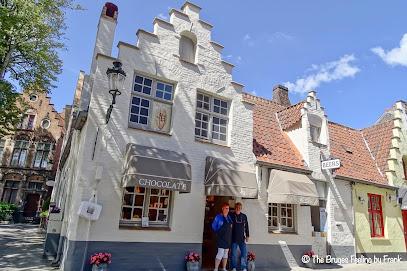
Marzipan & Nougatshop by Brown Sugar
Discover artisanal marzipan and nougat at Marzipan & Nougatshop by Brown Sugar in Bruges, where every sweet treat is crafted with love and tradition.
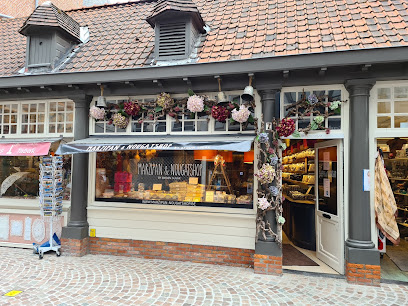
Twee Meisjes
Discover unique women's fashion at Twee Meisjes, a charming boutique in the heart of Bruges, capturing the spirit of local craftsmanship and contemporary style.
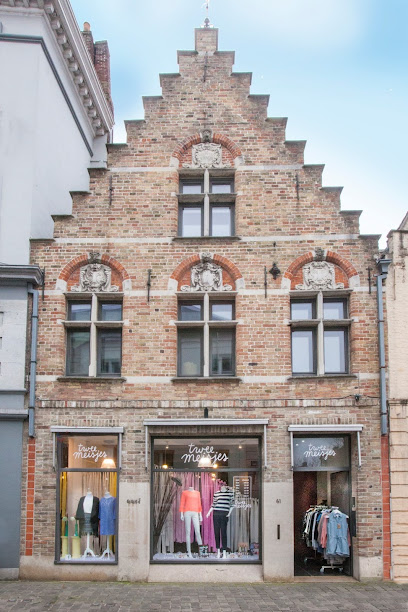
Chocolaterie de Burg
Discover the finest handcrafted chocolates at Chocolaterie de Burg, a sweet gem in the heart of Bruges, Belgium.
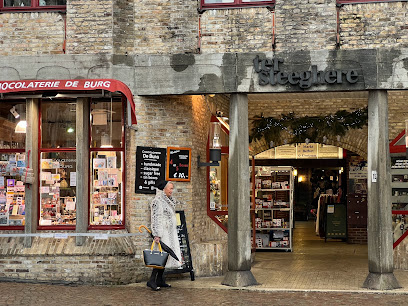
Goûts et Couleurs
Explore the exquisite interior decor at Goûts et Couleurs, a treasure trove of style located in the heart of Bruges, Belgium.
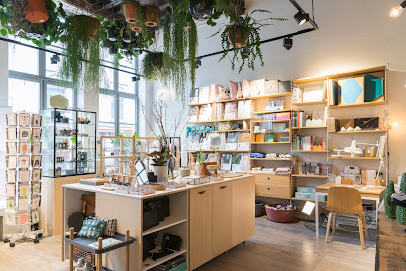
Skateshop The Fat Flamingo
Discover the ultimate skateboarding gear and streetwear at Skateshop The Fat Flamingo, a vibrant hub for skateboard culture in Bruges.
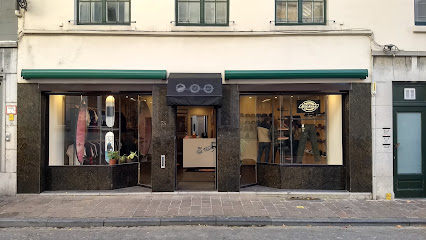
Essential bars & hidden hideouts
De Garre
Discover De Garre in Bruges: a cozy bar and cafe offering an exquisite selection of Belgian beers in a charming setting.
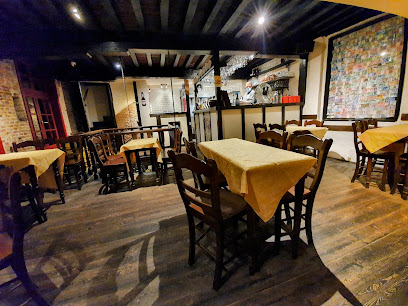
Le Trappiste
Experience the essence of Belgian beer culture at Le Trappiste, a charming bar in Bruges with an extensive selection of local brews.
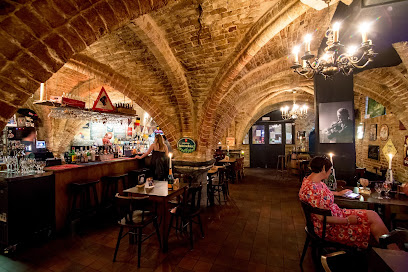
Cafe Rose Red
Experience the delightful fusion of Belgian cuisine and cozy ambiance at Cafe Rose Red, a must-visit restaurant in Bruges.
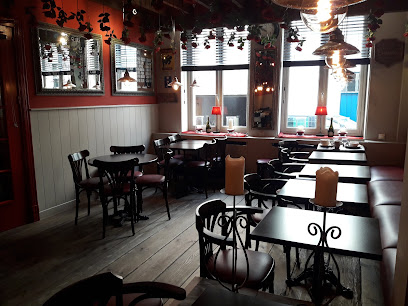
't Poatersgat
Discover the cozy atmosphere and vibrant culture of 't Poatersgat, a beloved bar and café in the heart of Bruges.
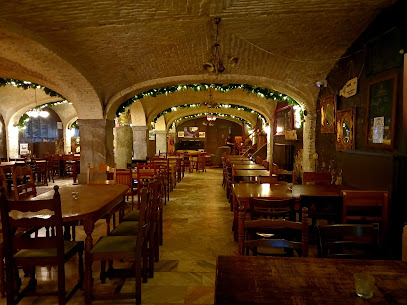
Bar Des Amis
Experience the heart of Bruges at Bar Des Amis, where cozy ambiance meets exquisite Belgian beverages.
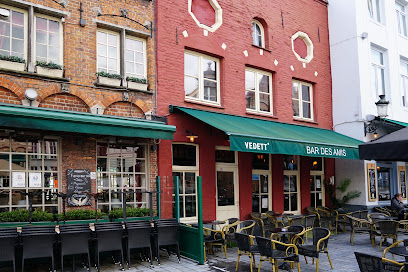
The Monk
Experience the vibrant energy and local flavors at The Monk, Bruges' premier sports bar and pool billiard club, perfect for unwinding with friends.
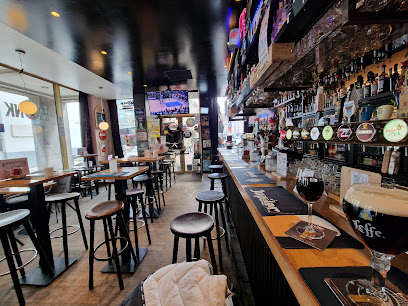
Groot Vlaenderen
Discover the vibrant cocktail scene at Groot Vlaenderen, Bruges' premier bar, offering exceptional drinks and a cozy atmosphere.
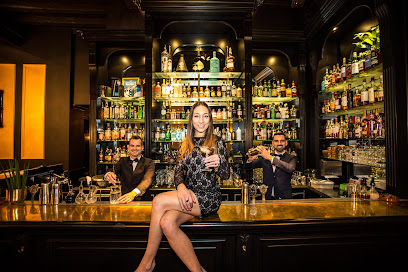
@ The Pub
Discover @ The Pub in Bruges, where an extensive selection of beers meets a lively atmosphere, perfect for unwinding after a day of exploration.
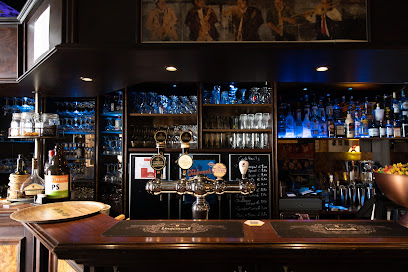
Bieratelier Brugge
Discover the rich flavors of Belgian beer and cuisine at Bieratelier Brugge, your go-to destination in the heart of Bruges.
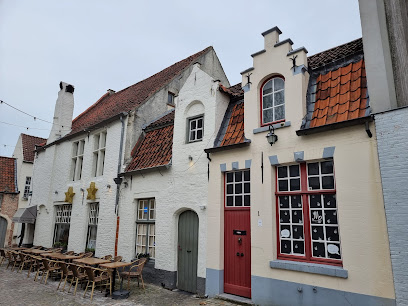
BAR 'N
Discover BAR 'N, a quirky bar in the heart of Bruges offering a unique atmosphere and an extensive drink selection.
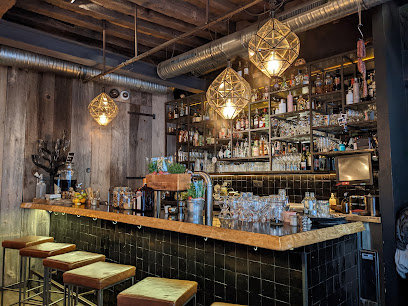
The Vintage
Experience the charm of Bruges at The Vintage, a cozy bar with an eclectic atmosphere and delicious drinks.
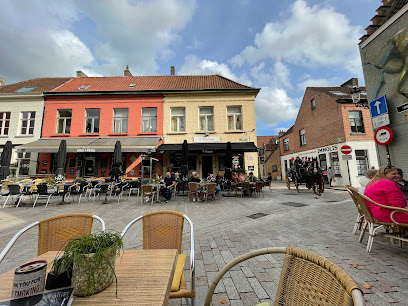
Duvelorium Belgian Beer Bar
Discover the best of Belgian beer culture at Duvelorium, a charming bar in Bruges offering a diverse selection of local brews and a warm atmosphere.
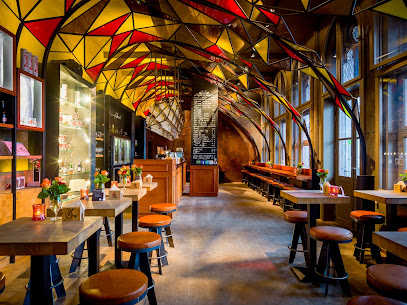
La Casita
Discover the heart of Bruges at La Casita, a cozy bar offering a delightful selection of local beers and cocktails in an enchanting atmosphere.
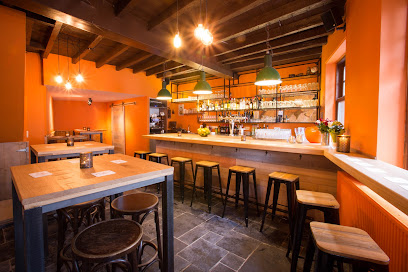
Bar Ran
Experience the vibrant nightlife of Bruges at Bar Ran, where expertly crafted cocktails and a cozy atmosphere await every visitor.
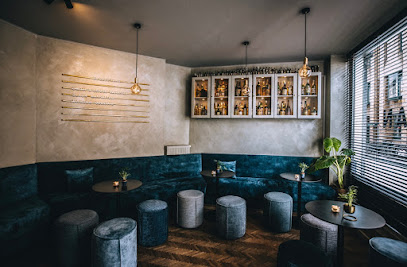
Retsins Lucifernum
Explore the charming Retsins Lucifernum in Bruges for a delightful bar experience with local drinks and a cozy atmosphere.
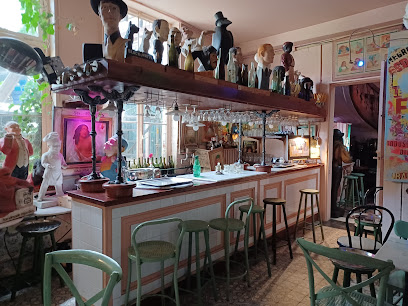
Local Phrases about Bruges Coast
-
- HelloHallo
[HAH-loh] - GoodbyeTot ziens
[toht zeens] - YesJa
[yah] - NoNee
[nay] - Please/You're welcomeAlstublieft
[AHL-stu-BLEEFT] - Thank youDank u
[dahnk oo] - Excuse me/SorrySorry
[SOH-ree] - How are you?Hoe gaat het?
[hoo gaat het] - Fine. And you?Goed. En met jou?
[khoot. en met yow] - Do you speak English?Spreekt u Engels?
[spraykt oo ENG-uhls] - I don't understandIk begrijp het niet
[ik buh-GRAIP het neet]
- HelloHallo
-
- I'd like to see the menu, pleaseMag ik de menukaart zien, alstublieft
[mahk ik duh menu-kahrt seen, AHL-stu-BLEEFT] - I don't eat meatIk eet geen vlees
[ik ayt khayn vleys] - Cheers!Proost!
[prohst] - I would like to pay, pleaseIk wil graag betalen, alstublieft
[ik vil khrahg buh-TAH-lun, AHL-stu-BLEEFT]
- I'd like to see the menu, pleaseMag ik de menukaart zien, alstublieft
-
- Help!Help!
[help] - Go away!Ga weg!
[gah vekh] - Call the Police!Bel de politie!
[bel duh poh-lee-see] - Call a doctor!Bel een dokter!
[bel ayn dohk-tur] - I'm lostIk ben verdwaald
[ik ben vur-DWAHLD] - I'm illIk ben ziek
[ik ben zik]
- Help!Help!
-
- I'd like to buy...Ik zou graag ... kopen
[ik zou khrahg ... KOH-pun] - I'm just lookingIk kijk alleen maar
[ik kike a-luhn mahr] - How much is it?Hoeveel kost het?
[hoo-vale kost het] - That's too expensiveDat is te duur
[dat is tuh dyoor] - Can you lower the price?Kunt u de prijs verlagen?
[kunt oo duh prays vur-LAH-gun]
- I'd like to buy...Ik zou graag ... kopen
-
- What time is it?Hoe laat is het?
[hoo laht is het] - It's one o'clockHet is één uur
[het is ayn oor] - Half past (10)Half elf
[hahlf elf] - MorningOchtend
[OHK-tuhnt] - AfternoonNamiddag
[NAH-mit-ahk] - EveningAvond
[AH-vont] - YesterdayGisteren
[KHEES-tuhr-uhn] - TodayVandaag
[vahn-dahkh] - TomorrowMorgen
[MOR-khun] - 1Een
[ayn] - 2Twee
[tway] - 3Drie
[dree] - 4Vier
[veer] - 5Vijf
[vayf] - 6Zes
[zehs] - 7Zeven
[zay-vuhn] - 8Acht
[ahkht] - 9Negen
[nay-guhn] - 10Tien
[teen]
- What time is it?Hoe laat is het?
-
- Where's a/the...?Waar is een/de...?
[vahr is ayn/deh] - What's the address?Wat is het adres?
[vaht is het AH-druhs] - Can you show me (on the map)?Kunt u mij tonen (op de kaart)?
[kunt oo may TOH-nun (op deh kart)] - When's the next (bus)?Wanneer is de volgende (bus)?
[VAHN-ur is duh vohl-HEN-duh (bus)] - A ticket (to ....)Een ticket (naar ....)
[ayn TIH-kuht (nar)]
- Where's a/the...?Waar is een/de...?
History of Bruges Coast
-
Bruges, established in the 9th century, became a significant commercial hub during the medieval period. Its strategic location along the Zwin estuary allowed it to flourish as a center for trade between northern Europe and the Mediterranean. The city's network of canals and proximity to the coast facilitated the transport of goods, making it a bustling port town.
-
The 12th to 15th centuries marked the Golden Age of Bruges. The city became one of the most important trading centers in Europe, with merchants from across the continent setting up offices and warehouses. The Bruges Bourse, established in the 13th century, was one of the first stock exchanges in the world. The wealth generated during this period led to the construction of grand buildings, such as the Belfry of Bruges and the Basilica of the Holy Blood.
-
By the late 15th century, the Zwin estuary began to silt up, rendering Bruges' port less accessible and causing a decline in trade. The city experienced economic stagnation until the 19th century when it was rediscovered by English and French tourists. The preservation of its medieval architecture and charm turned Bruges into a major tourist destination, leading to a revival of its fortunes.
-
During World War I, Bruges was occupied by German forces, but the city suffered little physical damage. In World War II, it was again occupied, but this time by Nazi Germany. The city was liberated by Canadian troops in September 1944. Bruges' well-preserved medieval architecture survived both conflicts, allowing it to retain its historical character.
-
Today, Bruges is a UNESCO World Heritage site known for its picturesque canals, cobbled streets, and historic buildings. The city's economy thrives on tourism, with millions of visitors each year coming to experience its unique blend of history, culture, and charm. Key attractions include the Markt square, the Church of Our Lady, and the Groeningemuseum, which houses a significant collection of Flemish art.
Bruges Coast Essentials
-
Bruges Coast is easily accessible by various modes of transportation. The nearest international airport is Brussels Airport (BRU), which offers numerous global connections. From Brussels, you can take a direct train to Bruges, which takes approximately 1 hour. Alternatively, you can fly into Ostend-Bruges International Airport (OST), which is closer but has fewer international connections. From Ostend, you can take a bus or a taxi to reach the Bruges Coast area.
-
Once you arrive at Bruges Coast, you have several options for getting around. The area is well-served by public transportation, including trains, buses, and trams. De Lijn operates the local buses and trams, which connect major towns and attractions along the coast. Renting a bicycle is also a popular way to explore, as the region is known for its flat terrain and scenic bike paths. Taxis and car rentals are available for more convenience, especially if you plan to visit more remote areas.
-
Belgium uses the Euro (EUR) as its official currency. Credit and debit cards are widely accepted in hotels, restaurants, and shops throughout Bruges Coast. ATMs are readily available, and it's advisable to carry some cash for smaller establishments and market purchases. Contactless payment methods are also becoming increasingly popular.
-
Bruges Coast is generally a safe destination for tourists. However, like any popular tourist area, it's important to stay vigilant. Petty theft, such as pickpocketing, can occur in crowded places like markets and tourist attractions. Be cautious in areas such as the Ostend train station and the busy promenade during peak tourist seasons. Avoid isolated areas at night and always keep an eye on your belongings.
-
In case of emergency, dial 112 for immediate assistance, which connects you to the police, fire, and medical services. There are several hospitals and clinics along the coast, with AZ Sint-Jan in Bruges being one of the main hospitals. Pharmacies are widely available for minor health concerns. Make sure to have travel insurance that covers medical emergencies.
-
Fashion: Do dress comfortably and appropriately for the weather, but avoid overly casual attire in upscale restaurants. Religion: Do respect local churches and religious sites by dressing modestly and keeping noise to a minimum. Public Transport: Do validate your ticket before boarding trains and buses. Don't eat or drink on public transport. Greetings: Do greet locals with a friendly 'Hallo' or 'Dag.' A handshake is common for formal introductions. Eating & Drinking: Do try local seafood delicacies and Belgian beers. Don't forget to tip, as it’s customary to leave around 10% in restaurants.
-
To experience Bruges Coast like a local, visit the weekly markets where you can buy fresh produce and artisanal goods. Try to learn a few basic phrases in Dutch, as it is appreciated by the locals. Don't miss the chance to explore lesser-known spots like the Zwin Nature Park and the picturesque village of Damme. For a unique experience, take a canal boat tour in Bruges or visit during one of the local festivals for a taste of regional culture.
Trending Landmarks in Bruges Coast
Nearby Cities to Bruges Coast
-
Things To Do in Zeebrugge
-
Things To Do in Blankenberge
-
Things To Do in Knokke-Heist
-
Things To Do in De Haan
-
Things To Do in Ostend
-
Things To Do in Ostend-Bruges International Airport
-
Things To Do in Nieuwpoort
-
Things To Do in Ghent
-
Things To Do in Kortrijk
-
Things To Do in Ypres
-
Things To Do in Aalst
-
Things To Do in Lille
-
Things To Do in Tournai
-
Things To Do in Antwerp
-
Things To Do in Brussels













